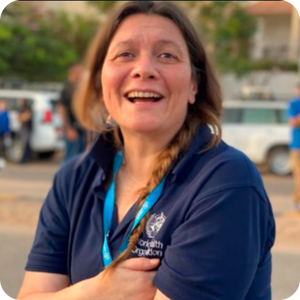The international development sector is viewed to be a prestigious field of work where professionals can scale up their careers while bringing a significant contribution to the lives of the most disadvantaged communities. However, with the recent shifts in donor priorities, substantial cuts in aid funding and hiring freezes, many professionals are finding themselves in a difficult position where they must decide what their next steps will be. The ability of international development organizations to attract and retain specialist talent is also under pressure and impacting upon life-threatening issues such as poverty reduction, climate change, and healthcare. Given the current trends, what is the best advice for professionals and how will the hiring landscape evolve over the next few years? We asked DevelopmentAid experts to share their thoughts on this. Check out some professional opinions below.
Key Takeaways:
- The shutdown of the USAID has had a cascading effect on global aid organizations, many of which have implemented hiring freezes and job cuts.
- In these challenging times, professionals in international development are advised to focus on building skills that are always in demand (e.g., project management, digital skills, AI).
- While hiring freezes are unlikely to become a permanent fixture, organizations may become more cautious and selective, prioritizing roles that are closely aligned with measurable outcomes and donor interests.
- The influence of AI in recruitment, as highlighted in reports such as LinkedIn’s ‘Future of Recruiting 2025’, will become more pronounced and prominent.
DevelopmentAid: Given the current trend of hiring freezes in many international development organizations, what advice would you give to professionals looking to advance their careers in this sector?

“Given the current hiring freezes in international development organizations, professionals aiming to advance their careers should diversify their skill sets and consider sectors that are closely aligned with development work such as healthcare, education, or public-private partnerships. Embracing certifications in project management (such as PMP or PRINCE2) or gaining expertise in technical areas like data analysis, digital transformation, and compliance management can open alternative avenues. Networking strategically across sectors and pursuing roles that offer job stability and professional growth can be advantageous, even if initially lower paid. My personal pivot to healthcare management leveraged my project management expertise and prior healthcare experience, providing stability and reduced stress compared to purely donor-dependent roles.”

“When hiring slows down, professionals in international development should focus on building skills that are always in demand. These include project management (like PMD Pro), using digital tools for monitoring and evaluation, writing strong proposals, and working across different sectors. Improving language and communication skills – especially in English and French – can also open more doors. It’s a good idea to look into consulting, freelancing, or offering remote support as these roles are often more flexible and not affected by hiring freezes. Volunteering with smaller NGOs or joining innovation labs can also help you to gain experience and make valuable connections. Above all, staying active through networking, online groups, and sector platforms keeps you visible and moving forward in your career.”

“Considering alternative career paths for development aid professionals, I would say that there is definitely not a unique “fit for all” piece of advice or solution, and it depends on personal experiences and career stage. In terms of skills and career advancements, I have noticed some emerging trends on social media platforms evolving around building personal brands, which may take different forms including sharing valuable experience through writing articles, blogs or other forms of knowledge sharing, including participation at round tables, taking part as guest speakers or panelists. In the same regard, I believe that others skill in focus are building effective networking, CV polishing, which development professionals tend to neglect, and definitely mastering AI collaboration tools.”

“This latest challenge does not change the overall shift in the job market within the international development sector. After an immediate slowdown in the short term, there will still be a growing demand for applicants with data and digital literacy with a growing interest in the inculcation of AI into policy and programming. Regarding climate change, those with an adaptation/resilience background will be drawn into vacancies with broader scopes where these skills remain cross-cutting along with localization; and good fundraising and proposal writing candidates will pick up more short-term contracts.”

“The current hiring freezes in international development, primarily driven by financial constraints and shifting donor priorities like the recent USAID funding adjustments, undoubtedly present challenges. However, professionals can navigate these uncertain times by adopting a proactive and adaptive approach. This period calls for strategic upskilling and reskilling with a focus on high-demand areas such as data analysis, digital technology, AI literacy, and specialized project management which can significantly enhance employability. I would also recommend following the suggestions of experts like Gary M. Lazor and Fatema Z. Sumar whereby robust networking is crucial so actively engage with industry associations, leverage online platforms like LinkedIn, and connect with mentors and former colleagues to uncover hidden opportunities and gain insights. Professionals should also broaden their horizons beyond traditional NGO roles. Consider alternative paths in private foundations, social enterprises, and multilateral agencies that are not solely reliant on single-government funding, or even private sector entities with strong CSR initiatives or international operations. Flexibility is key – short-term consultancies, freelance projects, or even impactful volunteer work can bridge employment gaps while building experience and networks. Ultimately, this challenging period can be an opportunity to enhance personal branding, focus on transferable skills, and even contribute to reimagining the future of development work by being entrepreneurial and impact focused.”

“We should take advantage of this uncertain period to strengthen our skills and knowledge. It’s important to explore how we can engage with adjacent sectors, such as enterprise or corporate social responsibility, that may offer innovative tools to improve the humanitarian sector. At the same time, we should invest in skill development in high-demand areas such as data analysis, project management, and resource mobilization, while incorporating artificial intelligence. Although many organizations are implementing hiring freezes, some are still seeking short consultancy roles. These opportunities can serve as a route to longer-term contracts and help to expand our professional network.”

“Hiring freezes in international development bring both challenges and opportunities. Here’s how to stay resilient and advance your career:
- Diversify your skill set: Focus on areas like M&E with AI/digital tools, climate adaptation, and humanitarian data. Proficiency in French, Spanish, or Arabic adds strong value.
- Explore alternative pathways: Short-term consultancies are still in demand. Use platforms like DevelopmentAid, Upwork, and LinkedIn. Corporations with CSR arms and bilateral aid agencies (e.g., USAID, GIZ, UNOPS) also offer opportunities.
- Leverage networking and volunteering: Join networks like Active Learning Network for Accountability and Performance in humanitarian action (ALNAP) or Young Professionals in Foreign Policy. Volunteer through programs like UNV to gain experience and build connections.
- Stay future-oriented: Track funding trends – climate finance, localization, digital transformation –and align your expertise accordingly. Hybrid roles combining development with tech, policy, or private sector work are growing.
- Invest in learning: Pursue certifications (e.g., PMD Pro, GIS, Power BI) and online courses (e.g., Coursera, edX) to stay competitive.”
DevelopmentAid: How do you foresee the hiring landscape in international development evolving over the next 3-5 years?

“Over the next 3-5 years, I anticipate a gradual stabilization in international development hiring practices as global economic conditions recover. While hiring freezes are unlikely to become a permanent fixture, organizations may become more cautious and selective, prioritizing roles that are closely aligned with measurable outcomes and donor interests. Professionals should expect greater demand for specialized skills, particularly in sustainability, climate resilience, and digital innovation. Thus, continuous skill enhancement and adaptability will be essential for remaining competitive. I agree that ultimately the robust recruitment practices will likely resume, but with a heightened focus on efficiency, accountability, and alignment with strategic organizational goals.”

“I believe the current hiring freezes are temporary and driven by short-term financial challenges. In the next 3 to 5 years, we’re likely to see more hiring again, especially as the world deals with issues like climate change, forced displacement, and public health. However, competition will be tougher, and hiring will rely more on digital tools. Organizations may prefer professionals who are flexible, tech-savvy, and open to consulting or short-term roles. Local expertise will also be more valued. To stay ahead, professionals will need to adapt quickly and keep learning new skills.”

“This is certainly not the first crisis I have been through that affected hiring or professional engagement opportunities. Thinking ahead, I can’t see the current hiring freezes remaining a permanent fixture. Narratives of development aid globally will definitely shift which will, in terms of recruiting development aid talent, be reflected in recruitment practices. Specific and need-driven development projects will require the strategic allocation of resources affecting recruitment strategies, hopefully bringing recruitment practices to the frontline to attract equally highly specialized and skilled professionals.”

“We have a lot to learn from the behavior of the international development sector during the pandemic, when similar organizational and systemic challenges arose. Initially, employers will continue to reduce their operational scope and focus on retaining core staff at the expense of projects and programs. Fundraising will become a key priority, adopting a more financially streamlined approach of fewer staff, increased remote working and job/task sharing. Yet again, as a result there will be increased vacancies for project-based roles immediately, followed by further increased requests in the medium term for greater digital/AI and climate change-related skills.”

“The hiring landscape in international development over the next 3 to 5 years will likely be a hybrid, shaped by current fiscal realities and emerging recruitment technologies. While the immediate shock of hiring freezes, such as those prompted by USAID funding shifts, may ease with global economic stabilization, a complete return to pre-freeze “robust recruitment” is not guaranteed in the near future. Instead, we anticipate more agile and technologically-integrated approaches that harness AI capabilities. Having navigated lean periods, organizations will likely retain some of the efficiencies gained, possibly leading to more targeted hiring. The influence of AI in recruitment, as highlighted in reports like LinkedIn’s ‘Future of Recruiting 2025’, will become more pronounced and prominent. We foresee the increased use of AI for candidate sourcing and initial screening, aiming for greater efficiency and access to a wider talent pool. This will likely be coupled with a stronger emphasis on skills-based hiring, potentially diversifying talent pipelines. While hiring freezes may not be permanent, the sector will adopt more strategic, data-driven, and flexible recruitment practices, valuing adaptability and specialized expertise alongside traditional qualifications. Human-centric skills like cross-cultural communication and complex problem-solving will remain paramount, especially as recruiters evolve into talent advisors.”

“The landscape in international development in the coming 3 to 5 years might be more stable, but it won’t return to business as usual. I can foresee that the international position might be minimized by giving more empowerment to local talent and leadership, the organization might be more interested in professionals who can be used in cross-sectoral experiences, and an increase in hybrid worker modalities. Moreover, organizations will increase their engagement of specialists from the private sector since there is a demand for efficiency and innovation from donors.”

“Since the economic crisis of 2008, the COVID-19 pandemic, and the changes occurring in 2025, the global economy has continually encountered downturns. International development organizations have always consequently operated by implementing hiring freezes and optimizing their operations to tackle pressing issues. One may even consider the current trend of hiring freezes as a new normal in the economic landscape. They seem to be an operational tool used in all sectors to cope with financial constraints, maintain organizational capacity and meet new rules coming in the future. Professionals usually learn from organizations and act likewise. It is time to explore, adjust to new trends by upskilling/reskilling, and get ready to onboard and tackle the worsening issues that will not be acted on due to financial constraints. Professional life is a journey with a regular competence and skill check-up and upgrading in order to be at the appropriate time and place. Hiring in international development is in turbulence. Over the next 3 to 5 years, global economic conditions may stabilize so professionals should be in good shape to deal with the upcoming challenges.”
See also: Who will take the United States’ place on the apex of international aid? | Experts’ Opinions
In times of uncertainty, strong characters are built. This is also true for professionals in the international development sector. With all the hiring freezes, aid cuts, and donor shifting priorities, it is time for experts to invest in new skills and become even more flexible and adaptable. With a strong CV, motivation letter and several resources for finding job opportunities, candidates can stand out from the competition and land the positions that most suit them. One way to do this is to opt for the DevelopmentAid Individual Professional Membership, which unlocks access to over 4,500 job opportunities in the international development sector, tenders and grants for individuals, the contact information of organizations and funding agencies, salary trends, news, and many benefits.

